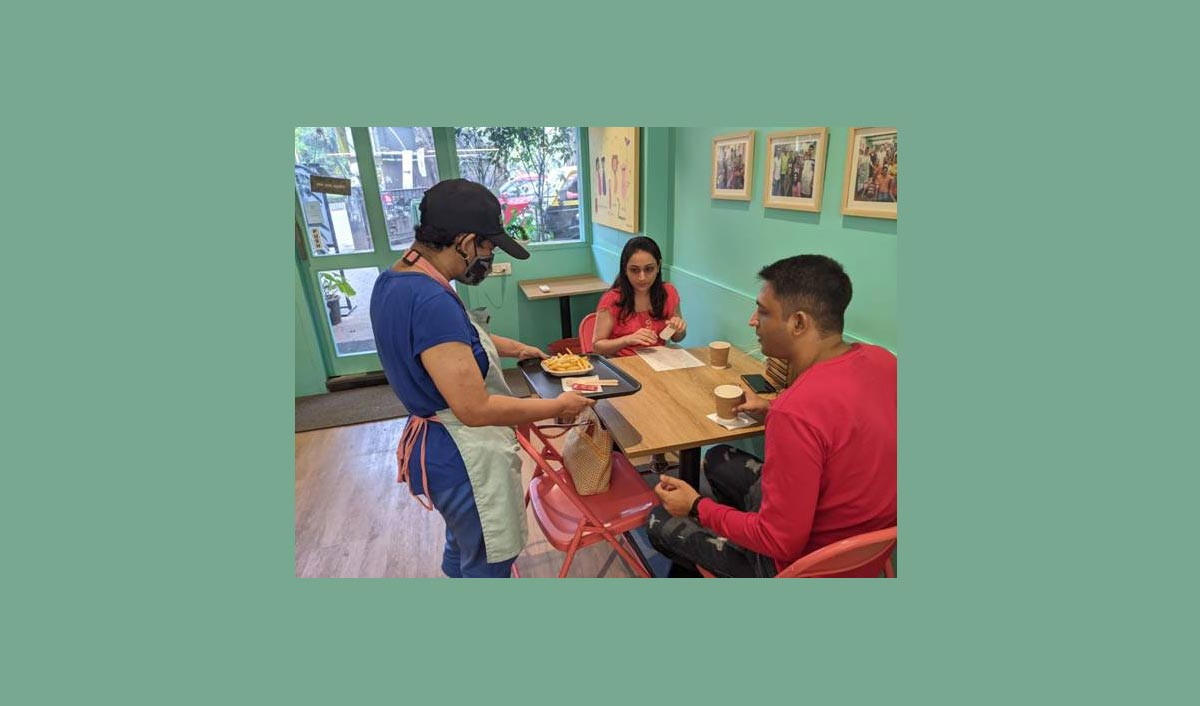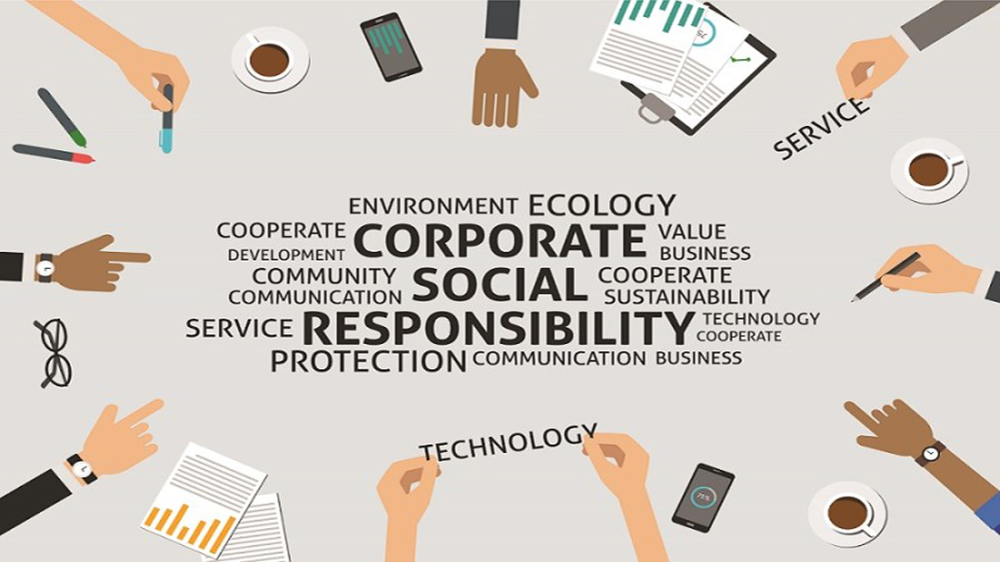
It’s a time-worn story in foodservice with too many job openings and not enough workers to fill them. And since the spring of 2020, the pandemic has exacerbated the already massive labour shortage for restaurants. As more and more restaurants are returning to normal operations and capacities, many are struggling to find workers. The reasons are myriad: worries about Covid exposure and unvaccinated customers. Many employees have gone back to their hometown and have started small f&b businesses while others have left the restaurant industry for jobs that have boomed during the pandemic, like retail fulfillment.
It’s tempting to conclude that the only answer is to offer more wages, but that might seem impossible for many operators coming out of 18 months of low revenues. So what else can you do? Regardless of the reasons for the employment crunch, restaurants can still attract and retain employees during this critical time using one key strategy: adopting an employee-first culture.
Show some empathy
Kunal Motwani Owner of Nori Delhi feels that employee-first culture is very important as there are multiple restaurant/startups opening every day, thus there is a need to make sure the staff is satisfied and stays loyal. “Maintaining a good employee retention rate is equally good for brand management,” he commented informing further that at Nori, the employee retention rate is between 80 to 90 percent.
Year over year, studies reveal that empathy plays a role in helping employees decide where to work. During times of upheaval, an empathetic workplace is critical to retaining talent, and it’s becoming an increasingly important factor for younger workers. Especially, considering the current situation, understanding the Covid trauma of the employees should be of utmost importance.
At Ardor 2.1 in New Delhi, the owner Suveett Kalra claims that their employees’ retention rate is 100 percent, working with them for more than a decade now. He dedicates this success rate to the culture of mutual love and respect, between all employees and owners. “Be it their medical fitness and taking them to camps for Covid vaccinations, we try our best to keep them healthy and fit. We treat them as family,” added Kalra.
Training matters
As much as ages play a huge role for employees, especially after potentially being unemployed for a long period of time because of the pandemic, there are certainly other factors too. According to Aman Talreja, Owner at Murphies, Pune, the training and assistance offered to employees when joining, job security, guarantee that their job will be retained even if the pandemic churns out another wave plays a huge role.
Correct training with a farsighted vision may attract employees who want to gain experience and is interested in a particular job role. “Proper training and orientation help them get in sync with the culture and rules while making sure new joiners are treated well and not bullied by senior staff members,” Sandeepraj Salian, Co-Owner of Farmaaish Lounge and Bar further said.
Staff is easily available at all times, what an organization need is dedicated and efficient people. “People or staff who have those traits, don't always fall for lucrative packages, it's a good working atmosphere and growth that they always looking for. I always felt that staff has always opted for an organization with an excellent reputation to take care of their employees,” Eshita Deoskar, Co-owner at Kynd Cafe and Bar in Pune stated.
Be flexible
Berkeley research found that hourly workers with highly unpredictable schedules report higher stress. At the same time, retooling scheduling tactics, like eliminating ‘clopening’ shifts (two shifts with fewer than 11 hours between) and increasing advanced notice of shifts is associated with improved employee wellbeing.
Commenting on flexibility, Salian said, “One of the key ingredients for a happy employee is work/life balance. We as owners have to assure our employees about their weekly off and paid leaves. This helps them relieve work stress and tiredness from the week.”
Emphasizing flexible scheduling in a job posting can also be very attractive to potential employees. In a recent MyWorkChoice survey, half of the hourly workers reported that job flexibility was important or very important to them.
Salian further added that the biggest motivation for their employees is a busy restaurant. Over the years he has noticed that when a restaurant isn't attracting customers, the employees get lazy and demotivated. Because of the pandemic, the restaurant had to keep many of its employees on standby; however, they were called in to help in other departments so that they are engaged in some work at the restaurant.
Is India ready for employee-first culture?
International markets have had started the trend of employee-first culture, which involves, a fair environment, the right to speak up, healthy work culture, etc. In these tough times, much hasn't changed in India and universally. “It's just that now it's owners driven market, most affected business have shut. Only the most effective people or staff have been retained and it's time that those staffs have to work harder with restaurant owners to come back to stability,” Deoskar said.
Employee-first culture would help brands to not only get more employees and keep them but also to save themselves from losses of time, money and effort of re-training new employees. In a restaurant, it is important for the employees to feel loyal towards their employer and the restaurant. “And to make this happen owners make sure to hear their employees out to know their viewpoints, opinions, ideas and understand what we need to change to bring employee and customer satisfaction,” Salian commented.
Having said that, becoming an employee-first restaurant is not an overnight change, it’s a cultural shift that needs to be adapted, accepted and followed. The success of any restaurant isn’t determined by its structure top-down but by its values integrated inside-out.
After all, in a tight labour market made even tighter by the pandemic’s challenges, any restaurant would want current employees to enjoy the peace of mind and reassurance one can provide. And sometimes, reassurance is much more than a pay cheque.

CSR is no longer a side initiative—it’s central to how responsible hospitality brands operate today. Everyone is committed to creating real impact through on-ground initiatives that benefit both people and the planet. CSR efforts champion sustainability, cultural preservation, and community upliftment - ensuring luxury hospitality leaves a positive mark on society. Hotels majorly spend around 15-25% of money in CSR activities on yearly basis. While big restaurant chains spend around 10-15% of their money on CSR activities yearly.
Brand reputation and guest loyalty
Guests today don’t just dine—they engage. They want to know that the brand they’re supporting shares their values. CSR build trust, and in hospitality, trust translates to loyalty.
Supporting local community through its operations
It’s all about growing with the community, not in isolation. Varun Sahani, Senior Vice President, Operations, Kamat Group of Hotels said, “We actively work with local farmers, small businesses, and regional vendors to create a sustainable ecosystem. Whether it's through sourcing produce, supporting vocational training, or contributing to health and education programs, our efforts are aimed at empowering the community around us. It ensures a sense of shared success—when we do well, they do too.”
Today’s diners care about where their food comes from and the values a brand stands for. “When they see a restaurant giving back, supporting local artisans, or making sustainable choices, it builds a deeper sense of trust and connection,” said Rajan Sethi, Managing Director, Bright Hospitality Pvt Ltd.
Help in compliance
CSR activities are aligned with both national and global sustainability mandates. Anurag Mathur, General Manager, Sayaji Vadodara said, “From eliminating single-use plastics through our in-house water bottling plant to ensuring energy-efficient infrastructure and eco-friendly amenities, our practices reflect sustainable governance that adheres to established environmental and social benchmarks.”
Role of Local sourcing in sustainability strategy
Local sourcing is a cornerstone of our sustainable operations. It allows us to reduce our carbon footprint, preserve regional culinary traditions, and maintain freshness in every dish we serve. Sahani expressed, "Our commitment is to ensure that every ingredient tells a story of authenticity, responsibility, and traceability.”
Elaborating on this, Sethi said, “One of the ways we do this is by consciously sourcing our ingredients from local and regional producers, not just within our city operations in Delhi, Gurgaon, Kolkata, Chandigarh, and Indore, but across the country.”
“For example, at our vegetarian, ingredient-forward restaurant OMO Soul Food Community, which focuses on clean and conscious food, we source unique ingredients from the Northeast of India, Southern India, and other regions,” added Sethi. This allows us to support indigenous farming communities, promote sustainability, and offer our guests authentic flavours rooted in India’s culinary diversity.
Sustainability Practices
Sustainability is integrated into our daily operations. “We don’t see sustainability as an initiative; we see it as a long-term strategy. Every technical upgrade at Sayaji Vadodara is part of a larger roadmap to drive down energy consumption, reduce environmental impact, and create a hotel ecosystem built for the future,” added Mathur.
Explaining further, he said, “We recycle greywater for horticultural use, harvest rainwater to recharge groundwater levels, and are in the process of installing a solar power plant to reduce electricity consumption and carbon emissions. Additionally, we practice waste segregation, use energy-efficient lighting and motion sensors, and have reduced plastic waste through our in-house water bottling facility.”
Impact on employee morale and workplace culture
When team members see the real, positive impact their workplace creates, it generates a sense of pride that goes beyond the paycheck. “From participating in clean-up drives to being involved in community kitchens or educational outreach, CSR fosters unity and purpose among teams. It becomes part of our internal culture—one rooted in care, respect, and contribution,” pointed Sahani.
Cost savings for a positive impact
By investing in infrastructure like the upcoming solar power plant, brands aim to reduce long-term electricity costs while lowering our carbon footprint. “Our water recycling and rainwater harvesting systems conserve essential resources, leading to cost-efficient operations. These practices not only save money but also support a cleaner environment and set an example of climate-conscious hospitality,” added Mathur.

Sustainability has emerged as a major objective for businesses worldwide in recent years. With increased concerns over environmental degradation resulting in consumers becoming more aware of the cumulative impact of every action, the demand for eco-friendly practices is at an all-time high. Thus, businesses are looking for ways to align their operations with Environmental, Social, and Governance (ESG) principles. In this context, sustainable food packaging has gained significant attention as an essential component for businesses looking to incorporate ESG initiatives and comply with the Securities and Exchange Board of India's (SEBI) Business Responsibility and Sustainability Reporting (BRSR) regulations. Here is a synthesis of these attempts and their consequent benefits.
Is there a need for change?
As one of the world's fastest-growing economies, India has to contend with multiple challenges to ensure sustainable growth. Every sector needs to reform traditional ways of functioning to comply with initiatives pertaining to conservation. Foremost among these is the food and beverage industry, which contributes to environmental degradation through excessive waste output, resource depletion, and carbon emissions, thereby jeopardising the planet’s future.
Why focus on the packaging?
In today's dynamic and competitive economy, packaging is about more than just protecting the products and ensuring easy delivery- It has evolved into a potent branding tool that attracts consumers' attention while communicating a brand's beliefs and identity. However, using single-use plastic, non-recyclable chemicals, and excessive layering, has resulted in a global plastic waste catastrophe, harming our ecosystem and depleting vital natural resources while tarnishing the brands’ reputations, especially among the environmentally conscious audience.
In the Indian setting, particularly when industries such as food and beverage, retail, and e-commerce are witnessing tremendous growth, the impact of unsustainable packing practices is undeniable. With a large population and a growing middle class, India generates a lot of trash as a result of packaging, contributing to pollution, landfill overflow, and ecological deterioration. It is critical for Indian firms to acknowledge their role in catalysing this catastrophe and to take steps to avert the impending crisis. Embracing sustainable food packaging solutions is an integral part of this.
Spearheading Conservation: ESG Initiatives in India?
The winds of change are blowing across India's corporate landscape, and ESG initiatives have become a beacon of progress. As concerns over the impact of wasteful practices on the environment assume centre stage, investors are becoming more cautious. They want to park their money with companies that would provide returns without compromising their environmental and ethical responsibilities. In recognition of this, Indian businesses are leading the charge when it comes to ESG initiatives, especially in the realm of sustainable food packaging. They are discarding traditional materials and investing in biodegradable and recyclable alternatives that align with global sustainability goals and meet the surging demand for eco-friendly products. Therefore, these companies are actively tackling environmental challenges while fostering a culture of responsible consumption, making it a win-win situation for the planet and consumers.
Sustainability as a legal responsibility: The Introduction of BRSR Compliance Regulations by SEBI
To further encourage businesses to engage reflexively with the need for sustainable practices and promote transparency through the full disclosure of ESG-related information, SEBI introduced the BRSR regulations in India, thereby making it compulsory for listed companies to report their performance (including initiatives taken) in the realm of promoting sustainability. This presents a unique opportunity for organisations to adopt sustainable food packaging as a demonstration of their commitment to abide by rules while protecting the environment.
Bottom-line
As is evident, sustainable practices have rapidly emerged as the cornerstone of development, and with this movement, sustainable food packaging has assumed tremendous importance. It is no longer a matter of ethical code compliance - companies in India need to adopt these practices to meet the requirements of ESG efforts and adhere to BRSR laws. Additionally, these practices help improve brand reputation and satisfy customer expectations. Therefore, they serve as flagbearers of change and help craft a cleaner, more inclusive and equitable future.

Let’s first dialog about the important features that a good hotelier must have: understanding, endurance, and intellectual suppleness. Each guest is dissimilar and transmits with them a realm that makes them who they are. It’s up to hoteliers to decode the needs of guests, gratifying them and making sure that their stay is remarkable and suitable to their needs. And the same acceptance has to be there for the employees as well for a happy employee equal to happy customers. As far as the LGBTQ community is concerned, the main trial is to always be yourself, even while working. Like everyone else in the world, they must always be themselves too. The want to always give flawless service, as well as highlight the reciprocated reverence among all kinds of guests without fail.
Creating Career Paths
A bequest landmark that has viewed the rising history of India, predominantly of Bengal, The Hyatt Regency Kolkata from its early days is a festival of the iconic legacy of the Raj. When Jay Pritzker acquired a Los Angeles airport hotel from Dutch businessman, Hyatt von Dehn in 1957, it marked the beginning of the glorious story of what is today one of the most prized hotel chains in the world. Ten years later, Pritzker’s idealistic spirit led to one of the phenomenal moments in the hospitality industry —the introduction of Hyatt Regency portfolio. In 2002, the City of Joy become home to this respected chain of hotels with Hyatt Regency Kolkata.
As always Hyatt’s ‘World of Care’ stage initiates to advance Fairness, Insertion, Assortment, and Accountable Professional Exercises and the Hyatt Regency Kolkata under this canopy lately amalgamated with Pt Ravi Kichlu Foundation to introduce mission ‘Hriday’ in backing of the LGBTQ Community. Compassion for the communities is dominant to Hyatt Regency Kolkata’s effort of caring for people so they can be their finest. “The activities of the previous year have emphasised the standing for associations to grab shared and group issues with thoughtful, clarity, and responsibility. Our ‘World of Care’ excavates Hyatt’s promise to caring for our people, earth, and societies. With this connexion, we will shape on Hyatt’s ‘Change Starts Here’ commitment to accelerate DE&I within with hotel’s staff”, upholds Shobhan Kumar, General Manager, Hyatt Regency Kolkata. Going onward Hyatt Regency Kolkata also purposes to acme DE&I with aptitude training and winning more associates of the community through the unit so that as a corporation they can truthfully replicate the varied communities it attends and contribute to a more impartial world. In addon, leading management from the hotel will also call the refuge and provide mentorship and coaching to improve their present skills or to teach innovative ones. As a business, exclusively placed to provide evocative career paths for people with different backgrounds and skill sets, Hyatt will endure to arrange producing vocation pathways for Prospect Youth of the LGBTQ community through its Rise HY program, to help young adults to aid them recognise and reach their full potential. “We strive to come together and make a confident influence in the communities we work with and the milieu we operate in”, adds Shobhan.

McDonald’s Corporation is announcing its commitment to achieve net zero emissions across its global operations by 2050.
As part of this initiative, the company is joining the United Nation’s Race to Zero campaign and signing on to the Science Based Targets initiative’s (SBTi) Business Ambition for 1.5°C campaign.
“We believe we have both a privilege and a responsibility to help lead on issues that matter most in communities – and there is no issue more urgent globally and of impact locally than protecting our planet for generations to come,” said Chris Kempczinski, McDonald's President and Chief Executive Officer.
A world with lower greenhouse gas emissions and a steady global temperature could ultimately mean less severe weather that can impact restaurant operators and their communities; and more favorable conditions for the farmers and ranchers who work hard to bring customers’ favorite menu items from the fields to the front counter.
“Because McDonald’s serves and delivers food to local communities around the world, they have an opportunity to use their unique assets - their restaurants and supply chain - to set an example of deep corporate responsibility and to inspire other companies and communities to do likewise. Its decision to commit to a net-zero future matters because it will deliver results at scale and build momentum ahead of COP26 where we need more companies, governments, and other actors to do the same,” said Carter Roberts, President and CEO of World Wildlife Fund (WWF).
Committing to net zero emissions by 2050 advances the company's work for decades to help drive a more resilient food system, support its farmers and producers, and regenerate the natural resources and ecosystems upon which our communities depend through regenerative agricultural practices.

When we think of restaurants, cafes, or eateries, we don't generally think of them being diverse or inclusive. There are restaurants across the country that have walked away from the crowd, offering a space where guests are greeted by differently-abled or we rather say, ‘specially-abled’ staff. Not just they have garnered much appreciation but have also supported society with a larger cause. When Ashaita Mahajan, Co-founder of Cafe Arpan started narrating the story, she was more original and enthusiastic than any other restaurateurs. After all, she is part of a bigger cause rather than just a co-founder of a cafe that serves scrumptious food.
For Mahajan, nothing is more important than creating awareness about Autism, while she draws her inspiration from her cousin Aarti who is an active member of Cafe Arpan. The cafe is an initiative started by an NGO called Yash Charitable Trust, founded by Dr Sushama Nagarkar who herself is a parent of a young adult with autism. Initially, it was started as an Arpan Dabba Service which is now called Arpan Food Services. The main idea was to create a platform for people with disabilities to come and work in an inclusive environment. They were an integral part of every step, not just making the Dabbas but also in packaging and delivering and even in procurement for vegetables, groceries etc.
“But in Dabba service, one thing that was missing was the ability to interact with the customers. In two years, the number of people working with us expanded five times, so we couldn’t fit all people into the kitchen. Thus, Cafe Arpan was born in 2018. We started crowdfunding and raised 8 lacs in15 days,” added Mahajan by pointing that there are people who believe in such businesses.

Pic Courtesy: Brinston & Dylan
Pandemic gave multiple challenges
Currently, due to the pandemic, everything had to be paused. But unlike other f&b businesses Cafe Arpan had multiple challenges. The major one was to keep the teammates safe and away from the sense of isolation. To overcome the situation, Mahajan and her team were continuously organising zoom sessions, which included activities like art, craft, meditation and yoga.
“We were adamant on continuing the payout support so we crowdfunded and also launched campaigns last year, which came out as a great help. Our USP is our team,” Mahajan commented. Later, when Cafe Arpan re-opened its doors for the guests, all the staff members were incredible in terms of picking up new training and new SOPs.
Similarly, for Pune’s first restaurant with specially-abled staff Terrasinne, lockdown came as a challenge and the restaurant faced its share of challenges. “But, not to give up on such a wonderful deed kept us going. Whichever ways we could help our staff during this time was a priority,” Dr Sonam Kapse Owner of Terrasinne said.
Every such restaurant has come up with a different mechanism to cope up with the ongoing crisis. The restaurant chain run by deaf and mute, Echoes cafe for an instant have come up with different modules like creating product-focused future-ready QSR/delivery brands and also integrating the café/fast casual(Echoes Living room) with retail D2C products.
Sahib Sarna, who is one of the co-founders informed that the restaurant chain has changed its business strategy in the past year completely by creating assembly line processes and modules to train the differently-abled staff in different roles like Barista, Kitchen etc and not limiting their roles to just servers or floor managers. “That was the main reason we could engage and empower them more in delivery and retail modules of the business,” he added.
Creating a fast-casual brand that generates employment for the Deaf and mute section of the society and also motivates all sections of society is the vision with which Echoes strive to move ahead.
Society has always been kind
“It feels ecstatic when you see a specially-abled person becoming confident day by day in his work, is his/her interaction with world around and also when guests giving them a thumbs up and enjoy the whole interaction,” Sarna commented.
While at Cafe Arpan, people love to come over specifically to celebrate their birthdays, anniversaries etc. Mahajan believes that the team members are extremely capable of doing things. “They just need acceptance, opportunity and a chance. Our customers are very open,” she said.
However, managing restaurants or eateries with specially-abled staffs comes with its own set of hurdles and difficulties. Sarna informed that the team did face a few hurdles in the start while convincing that a restaurant can be run completely by deaf and mute employees, where interaction is the key element. Adding to it, training SOP’s, creating different situations about things that could happen in a fast-casual environment was a challenge in the start but with time and most importantly working patiently helped to move past that.
'Inclusivity ' does take time, as kapse states. But once every process is in place it's an easy task.

Restaurants across the globe are trying their best to make multiple folds of profits each year. Along with making all the money, a restaurant business for that matter is also responsible for having a Corporate Social Responsibility (CSR) associated with their brand. Ideally, a company should also think about giving back to their society.
Researchers found that globally more than 77 percent of consumers prefer to buy from socially responsible companies. Even in the restaurant sector, consumers are willing to pay 5 to 10 per cent more because of the brand’s commitment to the community. Moreover, restaurant brands in India have understood the importance of maintaining a responsible image as a company to sustain in the ever cluttered and competitive marketplace.
Introspecting the current times, many restaurant brands, from major QSR chains to individual outlets, have contributed their bit. And for multiple reasons, it also comes as an added advantage.
Also Read: Why CSR Is Important For Restaurant Business
Giving back to the society
Debaditya Chaudhury, Director of Chowman feels that be it any corporate or restaurants it is their ethical duty to give back to society especially in times of need. Grown-up in Calcutta and having an emotional connection with the people of the city, Chaudhury feel blessed as a brand to be able to help and contribute to the people in distress.
“Our brand is closely associated with BASHA, an NGO that works towards providing better livelihood to the underprivileged and deprived section of the society,” he said further mentioning that Chowman has helped people whose homes were uprooted during Yaas and together with the employees volunteered to contribute for the relief work.
“Together we raised an amount of INR 2.7 lakh which included even the hard-earned tips of our bikers and delivery executives. Apart from the dry rations, basic essentials, hygiene essentials, and medicines,” he added by pointing that as a restaurant, they also organize campaigns to raise awareness on the problems of food waste that remains overlooked even in a third world country like ours.
What does the law say?
Back in 2014, India became the first country in the world to make Corporate Social Responsibility a mandate, through an amendment to the Companies Act, 2013. Since then, it is mandatory for restaurants and other businesses to invest in some of the other social activity. They could invest in education, donate to the needy, raise issues like gender inequality, hunger, and so on. According to the amendment, it is now mandatory for companies with a turnover of INR 1000 crores or a market value of INR 500 crores to spend 2 percent of their average profits of last three years on CSR. Before this law, the clause for CSR was only voluntary for companies.
Lite Bite Foods, which owns several restaurant brands, such as Zambar and Punjab Grill continuously engage in activities like ethical labour practices, Charity, Employee welfare, sponsorships, tree plantation, green strip management, vendor partner recognition etc., which according to the company provides a positivity to their style of doing business.

“We are a responsible foodservice operator and a Great Places to Work certified company. We fully understand that we operate in a society and we are committed to sustainability and community welfare,” said Chef Vineet Manocha- Vice President Culinary, Lite Bite Foods who also firmly believe that overall positivity and ethical practices automatically yield growth.
Helps to build a long-term relationship with consumers
Some of the international chains in India have indeed done a great job when it comes to CSR initiatives. Taco Bell, for instance, as a company firmly believe that a business can thrive only if it is able to use its resources to make a difference. It is critical for large scale businesses to build a long-term relationship with consumers and the community, which is backed by purpose-led initiatives rather than a transactional one which is driven simply by purchase.
Kumar Saurabh, Executive Director, Burman Hospitality Pvt Ltd (Taco Bell’s Master Franchise partner in India) commented that restaurant businesses cannot run in isolation and need to be cognizant of the community within which they operate. “While brands have long played a vital and active role in raising awareness and pushing change for humanitarian causes, the pandemic accelerated this process and prompted businesses like ours to take a step back and reconsider their mission,” he further stated.
At the onset of the pandemic last year, the company supported frontline warriors, daily wage earners and underserved communities through the ‘Taco Bell Cares’ initiative. The Taco Bell Cares was led through collaborations with various hospitals, NGOs and partner brands such as Goonj and World Health Group.
Catering to their CSR, KFC started Add Hope program with an aim to fight child hunger in the country. “Having achieved our initial target to feed 20 million meals by 2020, our endeavour of providing meals to underprivileged children continues, more so during the ongoing pandemic,” a spokesperson from KFC stated.
The American fast food restaurant chain have partnered with hospitals to serve more than 10,000 ‘Thank You Meals’ to healthcare workers across Delhi, Pune, Bangalore, Hyderabad and Kolkata as a token of gratitude. During the second Covid wave now, KFC planning similar initiatives to extend support with medical supplies, kits of food and hygiene essentials and more.
Further, with an aim to help local food businesses recover from its impact, the company launched KFC’s India Sahyog. This program will support 500 restaurants in strengthening their businesses over the next two years. The company is also in its continuous endevour in increasing the women workforce at their restaurants by 2X as well as doubling the footprint of Special KFCs (restaurants operated by hearing and speech impaired team members) by 2024.
Standalone restaurants too taking up CSR initiatives
Not just the big players in the market but the standalone restaurants too have realised amid the ongoing pandemic that the need for CSR initiatives is not just a social responsibility but a privilege that they have over others to be a helping hand.
May Interest: Cloud kitchen Cheferd Foods extends free meal service to marginalized people
Shakespeare Cafe in Delhi for instance like many others has been delivering food amidst the pandemic. They made a difference with their Sewa free meals for all Covid positive patients in West Delhi. They distributed thalis which were available to anyone who shows their RT-PCR reports and book their orders 24 hours prior.
“We also had raised funds to make as many thalis as possible, with each costing INR 60 only. Whoever wishes to join their initiative can donate through PayTm,” Mohit Ahuja Owner Shakespeare Cafe Punjabi bagh commented.
People want to know that their favourite restaurant not only take care of their employees, but also take care of the people in the communities in which they are based. Corporate social responsibility has so many facets and involving in any one of them can turn out to be a fruitful decision, not just in terms of reputation but also positive cash flow.

A lot has changed in the last year for people from all walks of life. Companies shut, salaries have stalled, and people were forced to go back to their natives. Amongst all this negativity, Out of The Blue came as a ray of hope for its employees.
While others were asking their employees to leave, Out of The Blue created a safe bunk yard for all their employees to stay with them in the safest premises that would safeguard their health and also guests. The place could accommodate about 40 staff members with proper bunk beds, bathroom facilities, and lockers.
“We have tried to create a safe place for our staff as they are our first customers and any decision we take we keep in mind them and their families too as they are part owners and a part of our Family,” shared Rahul Bajaj, Owner & Conceptualiser.
While the accommodation was one part of this, they also ensured that periodic testing was conducted for all their staff every 15 days. Ensuring their salary was credited in time so they could help their respective families.
Out of the Blue went all out to support their staff in whatever way they could. Be it providing rashan for their families or providing them with tickets to visit their families and come back, helping some with the medical expense for the family member, and so on.
They have also partnered with BMC for approximately 1200 bottles of water per week to be sent to hospitals for corona patients.

What is the training given to the EWD to bring them to work?
LTH believes that the brand should stand for more than ‘just profit’ and we are driving the brand to become truly Indian and trusted. In order for us to make these values a part of our DNA, we have focused our efforts on creating a socially inclusive work environment.
Our Employees With Disability (EWD) are often trained by the NGO/training company (through whom we source them) in soft skills and life skills and maybe hospitality skills too. These training modules can be anywhere from 1 to 3 months and in some cases 1 year. Once EWD join Lemon Tree Hotels, we then train them to do the tasks in their specific work areas, e.g. Housekeeping, Food & Beverage Service, etc.
What is the procedure of preparing them?
We believe that people with disabilities (which can be physical, social or economic disabilities leading to an opportunity deprivation) must be provided the same opportunities as others to realize their full potential and allow them to live with dignity. By creating a supportive environment in the organization that allows them to deliver their best, we are able to play a part, however small, in social inclusiveness, opportunity/livelihood creation and therefore nation building.
It is important to first brief and sensitizes the entire employee team at Lemon Tree and then welcome EWDs on board. This ensures they are made to feel comfortable and welcomed as part of the team. We have set up a ‘buddy’ system in the company where an existing employee is assigned as a buddy to the new EWD who helps him/her understand and learn his/her job and also helps with explaining processes and norms in the company.
What is the salary offered to them? Is it the same as others?
Yes, salary and benefits are the same as employees without disabilities and they work the same 9 hour shift.. Our policy of hiring EWD is a part of our business model and central to the way we work.
What are some of the morale boosting measures taken at the workplace for EWD??
The idea that we are welcoming them to be an important part of our company is the biggest morale boosting factor. This means they are being treated equally as others and with respect. Something which all persons with disability (PwD) consider very important for themselves.
As part of our regular HR processes, EWD also get a chance to have regular Engagement Chats with the Hotel General Manager, participate in all team activities, get the opportunity to win recognition and reward and are a central part of our monthly town halls. Even when the team does fun activities (inside or outside the hotel) they ensure the participation of all EWD.
How many employees are presently disabled at Lemon Tree?
We currently have ~400 EWDs in the employee base, who are Speech & Hearing Impaired (SHI), Orthopaedically Handicapped (OH) and Down syndrome or Autistic. They work across Housekeeping, Kitchen Stewarding, Food & Beverage Service and Finance/Stores. This is 13% of our total staffing at 27 hotels owned/operated across 16 cities in India.
How does their growth look like?
Our goal is to take this to 460-470 EWDs or ~15% by end March 2016. And then to 25% of the employee base by 2025.

Restaurant trends are changing with changing time and customer’s expectation. Initially, restaurant owners were satisfied by just serving delicious and quality food to the customers. But things are no more the same… Restaurateurs now have much more on their plates than preparing and catering good quality food.
The restaurant owners have realized the importance of social responsibility towards doing the right thing for employees, community and even towards Mother Nature. It has certainly become an important aspect for the food business. There are various ways by which restaurants are showing their concern and care for their customers.
Apart from serving good food, restaurants are caring for their customers by respecting charity and contributing to charitable causes following some sustainable practices. According to a survey held by Fransmart.com, 45 per cent customers prefer to go out to eat at restaurants that are socially responsible.
There had been various occasions in the past where restaurants had held various charities and donations for showing their concern towards the community. The 2005 floods which hit Chennai was one example where we witnessed how a restaurant chain came up and helped people suffering from the disaster. Papa John’s which is a much loved global pizza brand announced their association with an extensive donation towards organizing monitory aid for the victims. They came out with a statement where they said that Papa John’s has always believed in giving back to the society in every possible way.
Corporate social responsibility can be easily described in three words- ethical, altruistic and strategic. It’s all about respecting and valuing without harming the marketplace followed by workplace, community or the environment. Establishing goodwill is essential as it generates customer loyalty. It adds to a positive work atmosphere favoring the restaurant's reputation. “It’s highly essential for conducting your business in a socially responsible way as it is always beneficial for the business. CSR helps in meeting great employees for your restaurant making the customers understand your ideology and working,” shares Bobby, Owner, Cannoli Café, Hyderabad.
A restaurateur is burdened by customer social responsibility. Ethical responsibility is essential to keep the business intact. Paying the workers a fair wage followed by buying the raw materials from the local market comes under the ethical point of view. It generates a sense of relation which helps in running and sustaining the business. Restaurateurs should have an altruistic nature towards the society which always helps in exchanging messages.
Strategic social responsibility is always factored into the financial plan by the amount of money saved during the restaurant business. Coming up with Gluten-free menu item is another step in providing the community with their dietary needs while creating an additional profit stream for the venture. Recycling the products other than wasting it is another way to create profit. “It’s all about maximizing your profits and creating a sense of care. It is well said that without caring, nobody can sense the emotions of community. Keeping the society and community together is one thing which every restaurant should be familiar with,” explains Ankur, Owner, Virgin Wolf.
Restaurateurs need to create a culture of respect and emotions full of dignity carrying forward ethical standards throughout your restaurant business. It’s mandatory to examine all areas of operations for possible improvements. It is essential to know the exact processing from the time you purchase your product till the time when you dump the wastes.
Thus, in the F&B industry CSR is very important. Everything counts from correctly treating your employees to your customers which shapes the restaurant business.
Copyright © 2009 - 2025 Restaurant India.


















